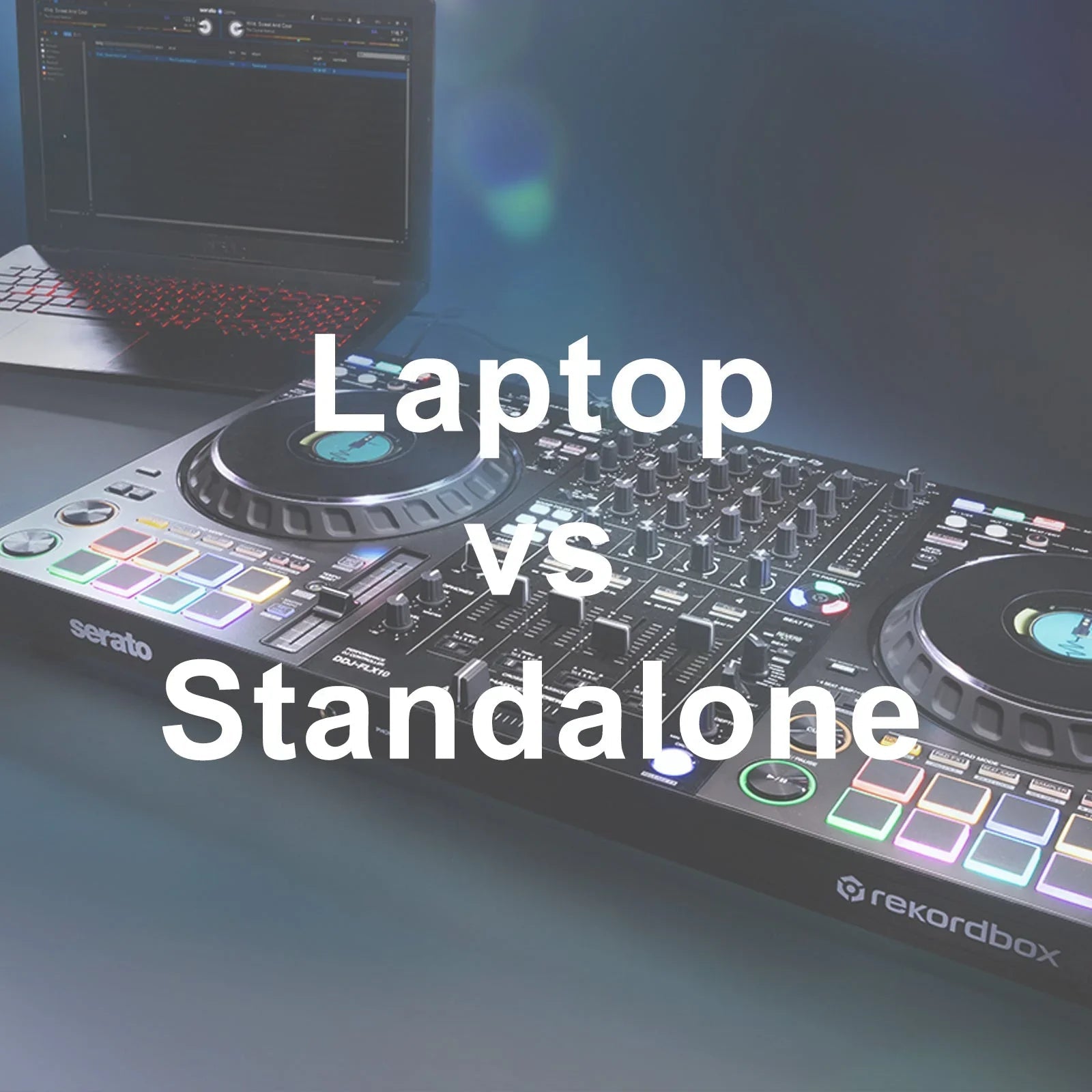Laptop-Based DJ Controllers vs. Standalone DJ Controllers: Which Is Right for You? 🎧🎶
When it comes to DJing, having the right controller is essential to delivering a great performance. However, with so many options available, especially with laptop-based DJ controllers and standalone controllers, it can be tricky to decide which one suits your style and needs.
Both types of controllers are used to manipulate your music, but they operate very differently and offer distinct advantages and disadvantages. In this blog post, we’ll dive into the key differences between laptop-based DJ controllers and standalone DJ controllers, helping you determine which one is the best fit for your setup, whether you're a seasoned DJ or just starting.
What Is a Laptop-Based DJ Controller? 💻🎧
A laptop-based DJ controller is a device that connects to a laptop or computer via USB and works in tandem with DJ software like Serato, Traktor, Rekordbox, or Ableton Live. Essentially, the laptop acts as the brain of your DJ setup, with the controller providing tactile control over the software’s features, such as beatmatching, effects, and track manipulation.
Key Features of Laptop-Based DJ Controllers:
-
Software Dependent 💻: Requires a laptop or computer to run DJ software. The software handles all the audio processing, track analysis, and library management.
-
Versatility & Customization 🎚️: Many DJ software programs offer an extensive range of features like loops, effects, cues, and hot cues, which you can manipulate via the controller’s knobs, faders, and pads.
-
Affordable Options 💸: Laptop-based controllers tend to be more affordable than standalone systems since the software and laptop already do much of the heavy lifting.
Common Uses for Laptop-Based DJ Controllers:
-
Home Studios & Practice 🏠: Perfect for DJs who want to practice at home or produce mixes on a budget.
-
Club Gigs 🎤: Ideal for professional DJs who use software-based effects and complex setups in clubs or at live events.
-
Mobile DJs 🚗: Many mobile DJs use laptop-based controllers because they can take advantage of powerful software in a portable package.
What Is a Standalone DJ Controller? 🎶🎛️
A standalone DJ controller is a device that operates independently without the need for a laptop or computer. It includes built-in audio processing, storage, and often DJ software, meaning it doesn’t require any external device to function. All you need are USB drives or SD cards with your music files to get started.
Key Features of Standalone DJ Controllers:
-
Self-contained System 🎧: No need for a laptop or external computer. Everything you need is built into the controller.
-
Built-in Audio Processing ⚡: These controllers come with internal sound cards and processors to handle all audio output, so you don’t need to worry about connecting to an external laptop or sound system.
-
Portability 🏖️: Since standalone controllers don’t rely on a laptop, they’re perfect for DJs who prefer a streamlined, portable setup. You can easily pack them for gigs without worrying about finding space for your laptop.
-
Advanced Features 🖥️: High-end standalone controllers often come with their own built-in software and advanced features like multi-deck control, advanced looping, and customizable effects.
Common Uses for Standalone DJ Controllers:
-
Live Performances 🎤: Great for DJs who want a hassle-free performance without needing to worry about a laptop or software.
-
Mobile DJs 🚚: Standalone controllers are a popular choice for mobile DJs who need a reliable, portable system that’s easy to set up at events.
-
On-the-Go DJs 🎶: Perfect for DJs who want to travel light and perform without carrying extra gear (like a laptop or software).
Key Differences Between Laptop-Based and Standalone DJ Controllers 🔑
Here’s a breakdown of the main differences between laptop-based controllers and standalone controllers:
| Feature | Laptop-Based DJ Controllers | Standalone DJ Controllers |
|---|---|---|
| Requires a Laptop/Computer | Yes, depends on DJ software | No, completely self-contained |
| Audio Processing | Handled by the laptop/software | Handled by the controller itself |
| Software | Needs third-party DJ software | Built-in software (or none at all) |
| Portability | Less portable due to the laptop | More portable, only requires music storage |
| Price Range | Generally more affordable | Higher price due to self-contained features |
| Customization & Features | More customizable via software | Limited to controller’s built-in features |
| Setup Complexity | Requires laptop connection & setup | Plug and play, simpler setup |
Pros and Cons of Laptop-Based DJ Controllers 📊
Pros:
-
Cost-effective 💸: Generally cheaper since you already own a laptop, and the software is often included in the price.
-
Flexible & Feature-Rich 🎛️: Offers greater customization and access to powerful features through third-party software.
-
Updated Software 🔄: Software updates and upgrades can give you access to new features and tools.
Cons:
-
Dependence on Your Laptop 💻: If your laptop crashes or runs out of battery, your entire setup could fail.
-
Setup Time ⏳: Setting up and connecting a laptop can take more time compared to the ease of a standalone system.
Pros and Cons of Standalone DJ Controllers 📊
Pros:
-
Portability 🏋️♂️: No need to carry a laptop; just the controller and storage drives.
-
Simplicity 🔌: Plug and play—just plug in your USB or SD card and start mixing.
-
Reliability ⚙️: With no external laptop to worry about, you have a more stable setup, less likely to experience technical issues.
Cons:
-
Higher Initial Cost 💰: Standalone systems can be more expensive, especially for higher-end models.
-
Limited Customization ⚙️: Lacks the advanced features and customizability of software-based controllers.
-
Storage Constraints 💾: Limited to the music you can store on USB drives or SD cards, which can limit flexibility depending on the controller’s capacity.
Which One Should You Choose? 🤔
The choice between a laptop-based DJ controller and a standalone DJ controller depends on your specific needs, preferences, and style as a DJ:
-
Choose a laptop-based DJ controller if you want a feature-rich setup that allows you to customize your workflow and access the latest software tools for mixing and effects. This is perfect for DJs who prefer software flexibility and have a laptop already in their setup.
-
Choose a standalone DJ controller if you need a portable, self-contained system for performing on the go, with less hassle and fewer wires. Standalone controllers are great for mobile DJs or anyone who wants a simpler, more reliable setup without a laptop.
Conclusion: Laptop vs. Standalone DJ Controllers 🎧
Both laptop-based DJ controllers and standalone DJ controllers have their pros and cons. The right choice depends on whether you value customizability and feature-rich software or whether you prioritize portability and simplicity in your setup.
Ultimately, it comes down to your style, needs, and the type of DJing you do. Whatever you choose, make sure it complements your performance style and helps you deliver the best experience to your audience.

